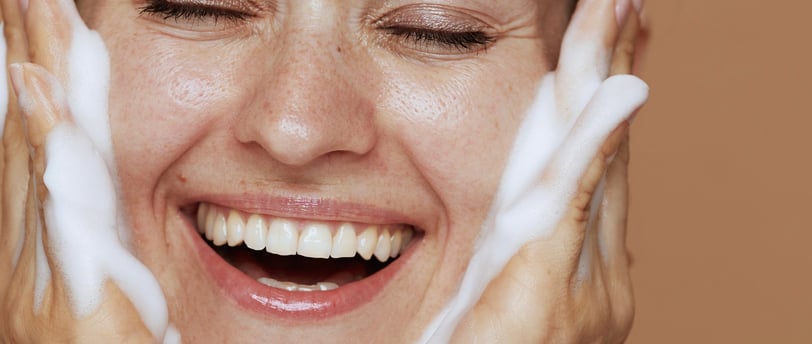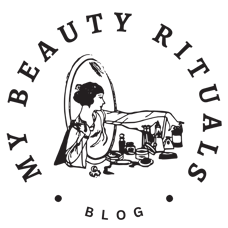The Essential Guide to Cleansing Your Skin: Why, How, and What Really Matters
Our skin is protected by a delicate but powerful lipid layer, a mix of natural fats, ceramides, and cholesterol that locks in moisture, supports cell renewal, and acts as a barrier against pollution, bacteria, and environmental stressors. This lipid barrier is crucial for keeping your skin healthy, hydrated, and resilient. But how you cleanse your face can make or break this natural defense.


Why Water Alone Isn’t Enough
While splashing your face with water might feel refreshing, it simply doesn’t remove the oils, sunscreen, makeup, or pollution that accumulate on your skin throughout the day. Imagine trying to clean a greasy pan with just water—the oil stays behind. The same goes for your skin: water alone can’t break down sebum, product residue, or environmental grime. Without a proper cleanser, these impurities can clog pores, dull your complexion, and even accelerate aging.
The Dangers of Over-Washing: Protect Your Lipid Barrier
It’s tempting to wash your face multiple times a day, especially if your skin feels oily or dirty. However, over-cleansing can strip away your skin’s essential lipids, leading to dryness, irritation, and a compromised barrier—a process known as “face stripping”. This makes your skin more prone to dehydration, redness, and even breakouts. For most skin types, cleansing once a day in the evening is enough to remove the day’s buildup of sweat, oil, and pollutants. In the morning, simply rinsing with water is sufficient, unless you have very oily skin or have sweated overnight.
The Importance of Using Fresh, Clean Towels
A clean towel is your best friend in any skincare routine. Towels can quickly become breeding grounds for bacteria, especially when damp. Using a fresh towel dedicated just for your face every couple of days helps prevent the transfer of bacteria and impurities, reducing the risk of breakouts, irritation, and even skin infections. Always pat your skin dry gently, never rub to avoid unnecessary irritation and micro-damage.
The Ideal Cleansing Routine
Evening: Use a gentle, pH-balanced cleanser to thoroughly remove makeup, sunscreen, oil, and daily grime. This prepares your skin for nighttime repair and allows your serums and moisturizers to penetrate more effectively.
Morning: Unless your skin is oily or you’ve sweated heavily, rinse with lukewarm water and follow with your morning skincare routine. Over-washing in the morning can disrupt your lipid barrier and lead to dryness.
Toner (Optional): After cleansing, a gentle toner can help rebalance your skin’s pH and remove any lingering impurities.
Always: Use a clean towel and pat, don’t rub your face dry.
Why Proper Cleansing Matters
Cleansing is the foundation of every skincare routine. It keeps your pores clear, supports your skin’s natural renewal processes, and protects the all-important lipid barrier that keeps your skin healthy, hydrated, and glowing. Remember: less is often more. Gentle, consistent cleansing is the secret to balanced, resilient skin.
In summary:
Your skin’s lipid barrier is essential for health and protection.
Water alone isn’t enough to cleanse away oil, makeup, or pollution.
Over-washing can damage your skin—stick to cleansing in the evening, and just water in the morning for most skin types.
Always use a fresh, clean towel to avoid bacteria and irritation.
Take care of your skin’s barrier, and it will take care of you!
